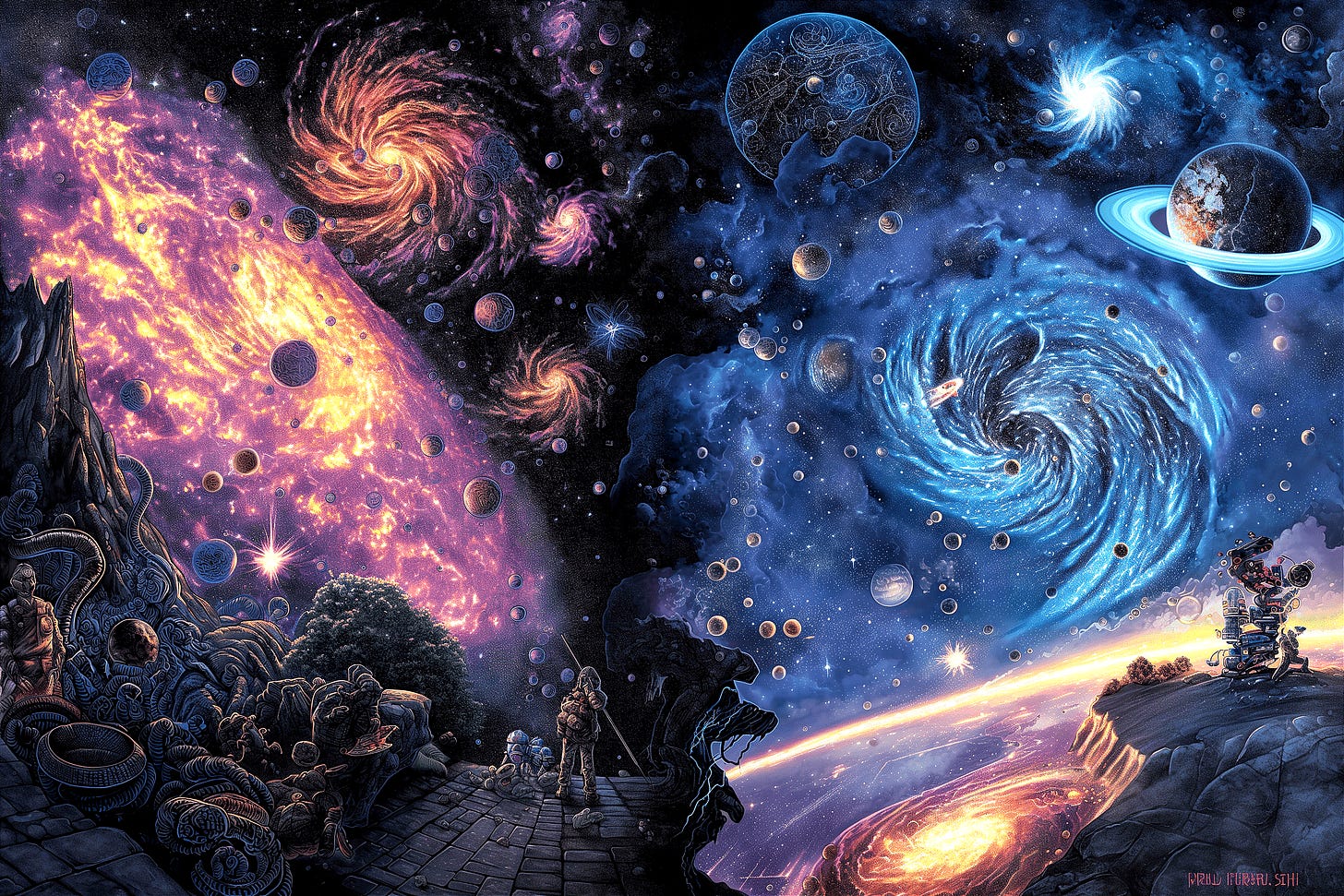On the Nature of Reality
Welcome to the embrace of wisdom, where trust and love reveal the fabric of our knowing.
The world we inhabit is not a collection of isolated objects, but a field of relationships. Everything that we know, everything that shapes our experience, arises through connection. Trust and truth are not distant ideals, but living forces that emerge from the way we relate to one another and to the whole of existence.
There is a modern myth that knowledge is an act of detachment, a cold observation of reality as something 'out there,' separate from us. This way of seeing has led to immense advancements, yet it has also alienated us from the deeper currents of reality. When we approach the world as something inert to be labeled and categorized, we risk reducing it to a mere concept rather than encountering it as a living presence. The truth is, we do not truly know something until we stand in relationship with it.
The left hemisphere of our brain tends to fragment reality, breaking it into isolated pieces for analysis. This function is essential, but it is not the whole story. The right hemisphere, in contrast, sees the world as an interconnected whole. It recognizes that nothing exists apart from its context. A melody is not simply a sequence of notes; it is an emergent pattern that can only be grasped in its fullness through experience. Similarly, love is not a set of behaviors or emotions, but a dynamic relationship, an unfolding presence that reveals itself in the act of communion.
This understanding invites us into a different kind of knowing—one that does not grasp or control, but listens and responds. It is the kind of knowing that arises in deep trust. To trust is to open oneself to the other, to recognize that truth is not imposed but discovered together. In this way, trust and truth share a common root; both emerge through relational depth, through an attunement to the rhythms of existence.
Our modern world often tempts us toward certainty—toward fixed definitions, rigid ideologies, and the illusion of complete control. Yet reality resists such containment. The deeper we enter into life, the more we recognize that truth is not a possession but a process, an ever-unfolding revelation that invites our participation. This does not mean truth is relative or arbitrary. Rather, it means truth is relational. It requires a willingness to engage, to listen, to be shaped by the encounter.
Consider how we come to know another person. We do not grasp their essence through a list of attributes or a collection of facts. We come to know them by being with them, by allowing their presence to shape our own. The same is true of the world. If we wish to know reality, we must enter into relationship with it. We must allow ourselves to be transformed by the encounter.
This shift in perception has profound implications. It calls us to humility, to recognize that knowledge is not the accumulation of facts, but the deepening of relationship. It calls us to reverence, to see the world not as raw material for our use, but as a living presence that invites our response. It calls us to love, for love is not merely an emotion, but the very structure of reality—the binding force that holds all things in communion.
When we trust in this way, we begin to see that reality is not something external to us, but something we participate in. The sacred is not distant or abstract, but intimately woven into the fabric of our experience. The sense of separation we often feel is not the ultimate truth, but a limitation of our perception. The more we cultivate this relational awareness, the more we awaken to the fullness of life.
This awakening does not require us to abandon reason or science; rather, it invites us to expand our ways of knowing. Rational analysis and empirical inquiry have immense value, but they are not the only pathways to truth. Intuition, imagination, and contemplative awareness also offer access to dimensions of reality that cannot be reduced to measurement or definition. Music, poetry, and silence often reveal more about the nature of existence than any scientific equation.
The cosmos is not a machine, but a living whole. It pulses with meaning, inviting us into deeper communion. When we approach the world with trust rather than control, we find that it responds in kind. Meaning is not imposed but discovered, emerging through relationship.
To live in this way is to step into the flow of existence rather than resist it. It is to embrace the knowledge that is given through love rather than through force. It is to recognize that reality is not static but alive, and that our role is not to master it, but to participate in its unfolding.
The ground of all knowing is love.
Not a love that clings, but a love that listens.
Not a love that demands, but a love that trusts.
It is the pulse of reality, the rhythm of communion,
the silence that speaks, the presence that remains.




